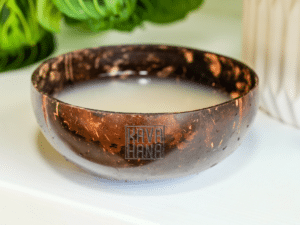Few plants have gotten as much attention and debate as kava in the realm of natural herbs and remedies. With a history deeply rooted in the cultures of the Pacific Islands, kava has been used for centuries for its relaxation and stress-reducing effects. However, as it’s gained popularity in North America and Europe, a cloud of myths about kava has emerged, bringing into question its safety and efficacy and instilling fear around using it.
After years of additional research and investigation, it turns out that most of those myths are, in fact, myths. Some issues are taken out of context due to the lack of understanding of what kava is and how it works in the body. Here, we discuss the three most common myths about kava and where they came from, and we show evidence that they are untrue.
Myth #1: It’s psychoactive and makes you drunk
This might be one of the most confusing myths about kava due to its effects when you use it. But it’s all in how it works in the body and brain. For some people, the effect you get from kava makes them feel “high”; that is, it impacts how their mind feels. However, the research shows there are no actual hallucinogenic properties in kava. The feelings you experience from kava come from how it acts on the brain’s gamma-aminobutyric acid, or GABA, neurotransmitter system.
Neurotransmitters are chemical messengers responsible for sending signals from your brain to different body parts. The GABA system is inhibitory. It slows the body down, making you feel relaxed and calm when activated. Kavalactones act directly on the GABA system, increasing the amount of GABA in your brain and giving you the calming and refreshing effects Kava is known for.
Research does suggest that different kava preparations can affect its potency. For example, smaller doses leave you feeling calm, refreshed, and social, while taking higher doses may give you feelings of extreme joy, calm, and loss of fine motor skills. These higher doses are not recommended and can impair your ability to drive. So, like alcohol, there is a limit to how much you should take before you’re impaired. However, with kava, it takes much more to get to the point of not being able to drive than alcohol. The ideal therapeutic doses are 180-300mg of kavalactone daily.
Myth #2: It can lead to addiction
There is a misunderstanding that kava is addictive. While there are historical cases where people have “craved” kava after using it, many of those have been linked to using kava with other substances. Most of these date back to colonial times when kava wasn’t well understood and was often used with other things, like alcohol. This is one of the myths about kava that has continued throughout history due to the story’s strength.
There are two kinds of addiction: chemical addiction and behavioral addiction. Chemical addiction is what happens in most drugs and alcohol. The substance itself can lead to chemical changes in your brain that make it work differently. Behavioral addiction is more psychological and involves persistent, repetitive behaviors that you continue even when there is no benefit. There are no physical changes, but the feeling or habit of doing something is addictive.
As mentioned above, kava works on your neurotransmitter system. It causes a temporary increase in GABA, which gives you relaxing effects. Eventually, kava wears off, and your GABA levels return to normal. Unlike alcohol and other substances, kava doesn’t change your brain structure, so there is no physical dependence like with other drugs or alcohol.
In fact, because the effects of kava are so similar to that of alcohol, it’s been used in several recovery programs to reduce alcohol and drug use. However, while there is no chemical addiction, some people may become behaviorally addicted, that is they become addicted to how kava makes you feel, if they use it too much. Like any substance or medication, using kava responsibly and knowing the dose for your best experience is important.
Myth #3: It causes liver damage
The most publicized myth of kava is probably that using it causes liver damage. This was initially started back in the 1990s in Western Europe when many people reported getting liver damage, and some even died after taking an herbal kava supplement. There were even some deaths, which naturally caused some alarm. This led to the EU banning kava in many countries based on safety concerns.
However, after an in-depth investigation by the World Health Organization, it turns out that kava itself wasn’t the issue. It was recognized that kava has been used for thousands of years in the Pacific Islands, and there is no history of liver disease. This issue was connected to kava supplements being impure or contaminated with other unwanted ingredients or being used with other medications or substances that caused problems.
Unfortunately, this is one of the myths about kava that some skeptics still circulate. The reality is like other substances, kava needs to be taken with care and understanding how it affects you when used with other drugs or alcohol. The conclusion was that kava root is safe, especially if used traditionally, in a pure form as a beverage away from other substances. We still don’t fully understand how kava interacts with other substances, so like alcohol, it’s best not to mix.
* Please note that the majority of kava research pertains to kava extracts, which often undergo significant processing and may contain additional ingredients and fillers that can influence their efficacy. It is crucial to consider this distinction when reading about kava studies. To draw an analogy, enjoying natural kava as a beverage can be likened to experiencing a freshly brewed cappuccino, whereas kava extracts are akin in functionality to a caffeine pill. Both forms have their unique benefits and can cater to different preferences and needs. While it’s helpful to understand research on kava extracts, please view it critically and remember that natural kava offers a uniquely holistic experience.







